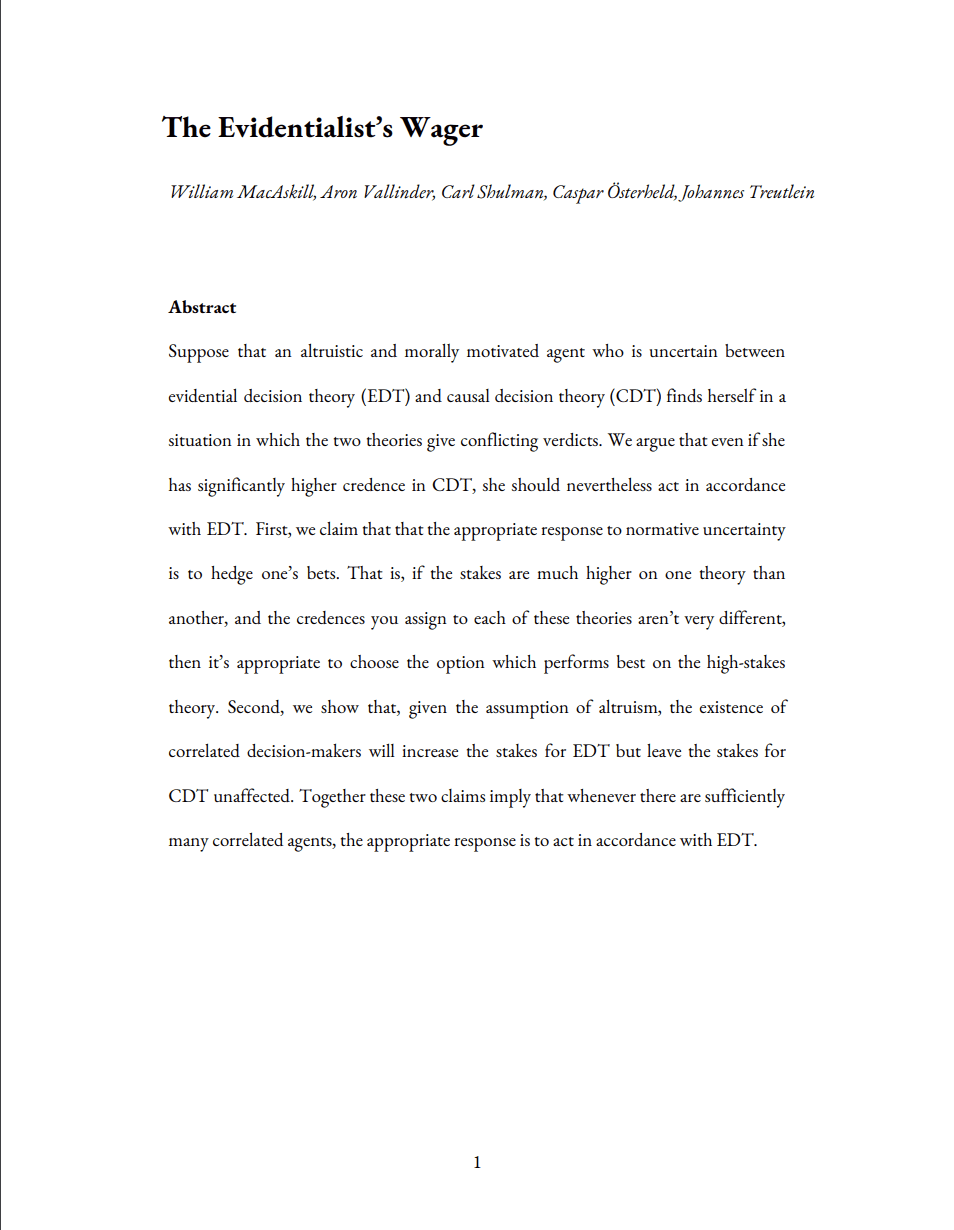The evidentialist’s wager
William MacAskill (Global Priorities Institute, Oxford University), Aron Vallinder (Forethought Foundation), Caspar Österheld (Duke University), Carl Shulman (Future of Humanity Institute, Oxford University), Johannes Treutlein (TU Berlin)
GPI Working Paper No. 12-2019
Suppose that an altruistic and morally motivated agent who is uncertain between evidential decision theory (EDT) and causal decision theory (CDT) finds herself in a situation in which the two theories give conflicting verdicts. We argue that even if she has significantly higher credence in CDT, she should nevertheless act in accordance with EDT. First, we claim that that the appropriate response to normative uncertainty is to hedge one’s bets. That is, if the stakes are much higher on one theory than another, and the credences you assign to each of these theories aren’t very different, then it’s appropriate to choose the option which performs best on the high-stakes theory. Second, we show that, given the assumption of altruism, the existence of correlated decision-makers will increase the stakes for EDT but leave the stakes for CDT unaffected. Together these two claims imply that whenever there are sufficiently many correlated agents, the appropriate response is to act in accordance with EDT.
Other working papers
How effective is (more) money? Randomizing unconditional cash transfer amounts in the US – Ania Jaroszewicz (University of California San Diego), Oliver P. Hauser (University of Exeter), Jon M. Jachimowicz (Harvard Business School) and Julian Jamison (University of Oxford and University of Exeter)
We randomized 5,243 Americans in poverty to receive a one-time unconditional cash transfer (UCT) of $2,000 (two months’ worth of total household income for the median participant), $500 (half a month’s income), or nothing. We measured the effects of the UCTs on participants’ financial well-being, psychological well-being, cognitive capacity, and physical health through surveys administered one week, six weeks, and 15 weeks later. While bank data show that both UCTs increased expenditures, we find no evidence that…
Prediction: The long and the short of it – Antony Millner (University of California, Santa Barbara) and Daniel Heyen (ETH Zurich)
Commentators often lament forecasters’ inability to provide precise predictions of the long-run behaviour of complex economic and physical systems. Yet their concerns often conflate the presence of substantial long-run uncertainty with the need for long-run predictability; short-run predictions can partially substitute for long-run predictions if decision-makers can adjust their activities over time. …
Consciousness makes things matter – Andrew Y. Lee (University of Toronto)
This paper argues that phenomenal consciousness is what makes an entity a welfare subject, or the kind of thing that can be better or worse off. I develop and motivate this view, and then defend it from objections concerning death, non-conscious entities that have interests (such as plants), and conscious subjects that necessarily have welfare level zero. I also explain how my theory of welfare subjects relates to experientialist and anti-experientialist theories of welfare goods.

